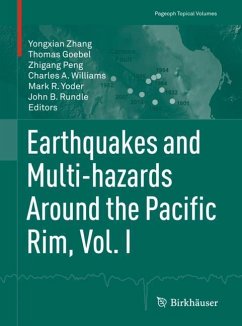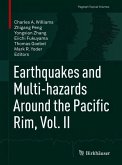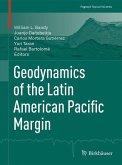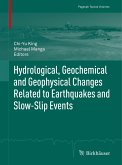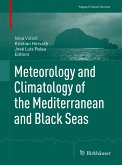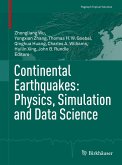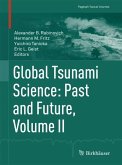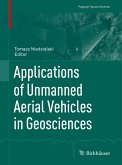This is the first of two volumes devoted to earthquakes and multi-hazards around the Pacific Rim. The circum-Pacific seismic belt is home to roughly 80% of the world's largest earthquakes, making it the ideal location for investigating earthquakes and related hazards such as tsunamis and landslides. Gathering 16 papers that cover a range of topics related to multi-hazards, the book is divided into three sections: earthquake physics, earthquake simulation and data assimilation, and multi-hazard assessment and earthquake forecasting models.
The first section includes papers on laboratory-derived rheological parameters as well as seismic studies in the Gulf of California and China. In turn, the second section includes papers on improvements in earthquake simulators as well as the statistical methods used to evaluate their performance, automated methods for determining fault slip using near-field interferometric data, variabilities in earthquake stress drops in California, and the use of social media data to supplement physical sensor data when estimating local earthquake intensity. The final section includes a paper on probabilistic tsunami hazard assessment, several papers on time-dependent seismic hazard analysis around the Pacific Rim, and a paper on induced and triggered seismicity at the Geysers geothermal field in California.
Rapid advances are being made in our understanding of multi-hazards, as well as the range of tools used to investigate them. This volume provides a representative cross-section of how state-of-the-art knowledge and tools are currently being applied to multi-hazards around the Pacific Rim. The material here should be of interest to scientists involved in all areas of multi-hazards, particularly seismic and tsunami hazards. In addition, it offers a valuable resource for students in the geosciences, covering a broad spectrum of topics related to hazard research.
The first section includes papers on laboratory-derived rheological parameters as well as seismic studies in the Gulf of California and China. In turn, the second section includes papers on improvements in earthquake simulators as well as the statistical methods used to evaluate their performance, automated methods for determining fault slip using near-field interferometric data, variabilities in earthquake stress drops in California, and the use of social media data to supplement physical sensor data when estimating local earthquake intensity. The final section includes a paper on probabilistic tsunami hazard assessment, several papers on time-dependent seismic hazard analysis around the Pacific Rim, and a paper on induced and triggered seismicity at the Geysers geothermal field in California.
Rapid advances are being made in our understanding of multi-hazards, as well as the range of tools used to investigate them. This volume provides a representative cross-section of how state-of-the-art knowledge and tools are currently being applied to multi-hazards around the Pacific Rim. The material here should be of interest to scientists involved in all areas of multi-hazards, particularly seismic and tsunami hazards. In addition, it offers a valuable resource for students in the geosciences, covering a broad spectrum of topics related to hazard research.

